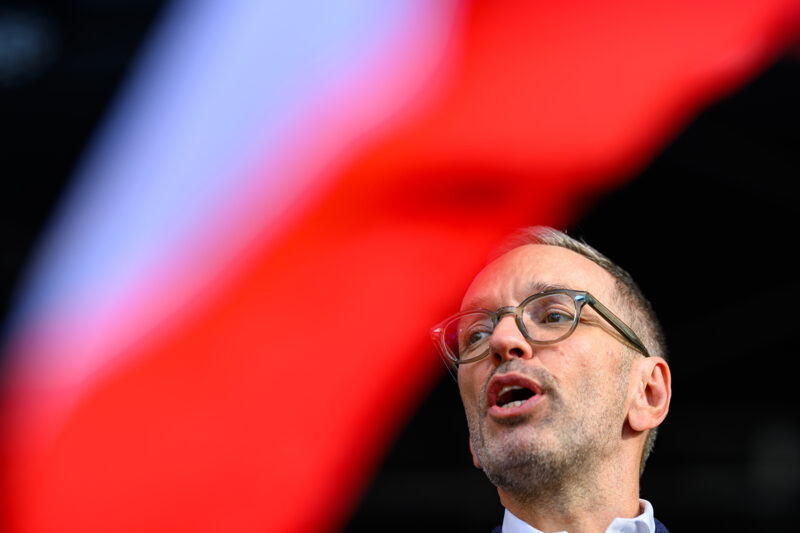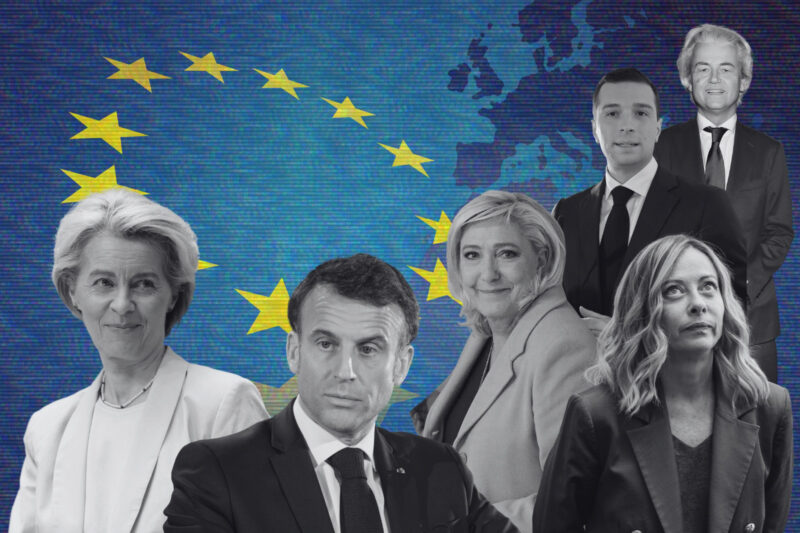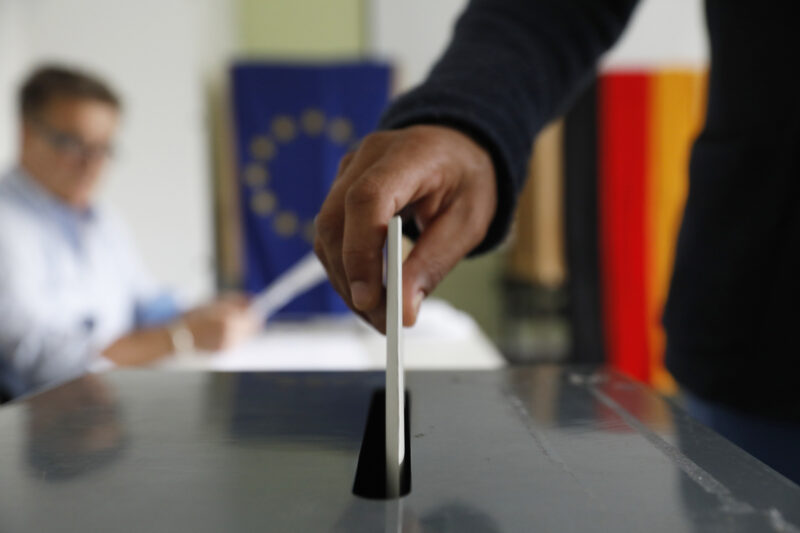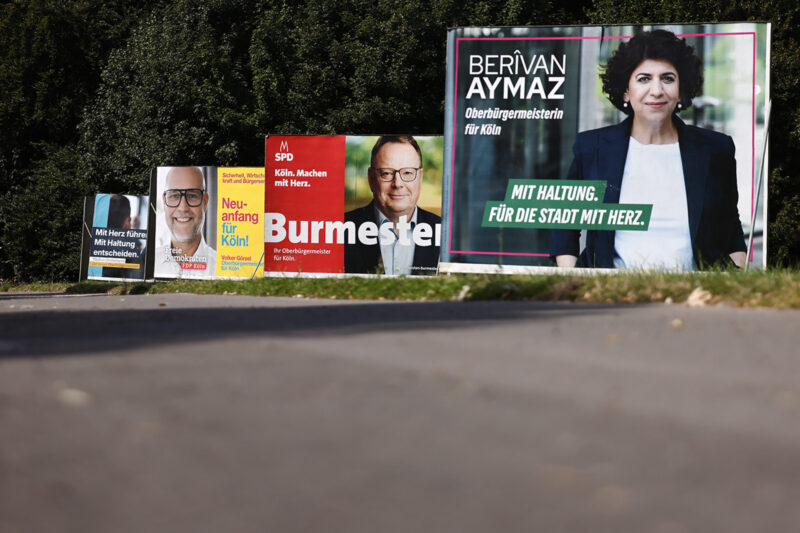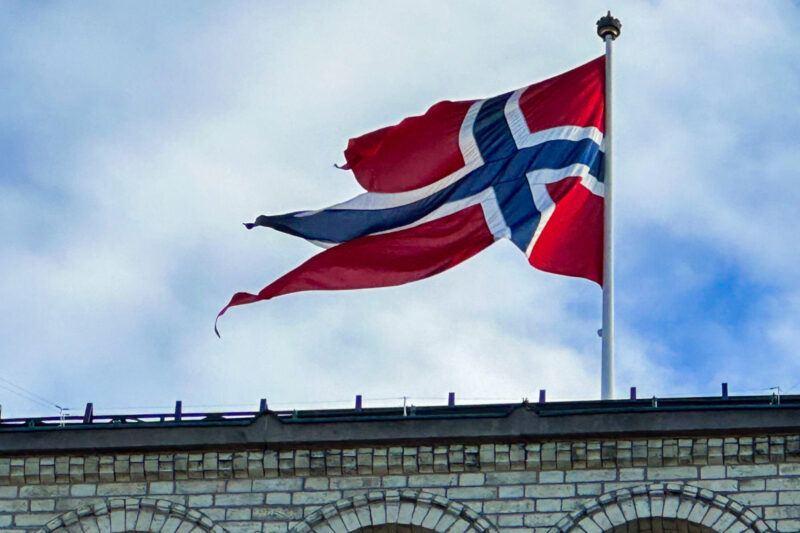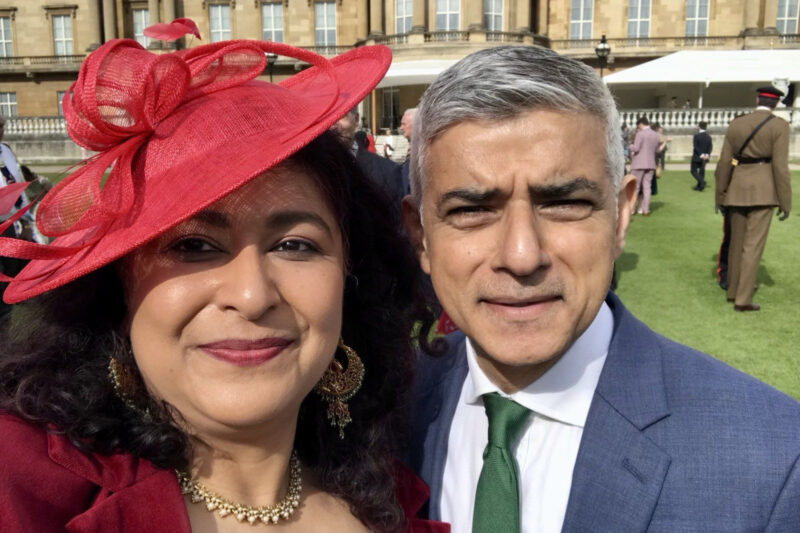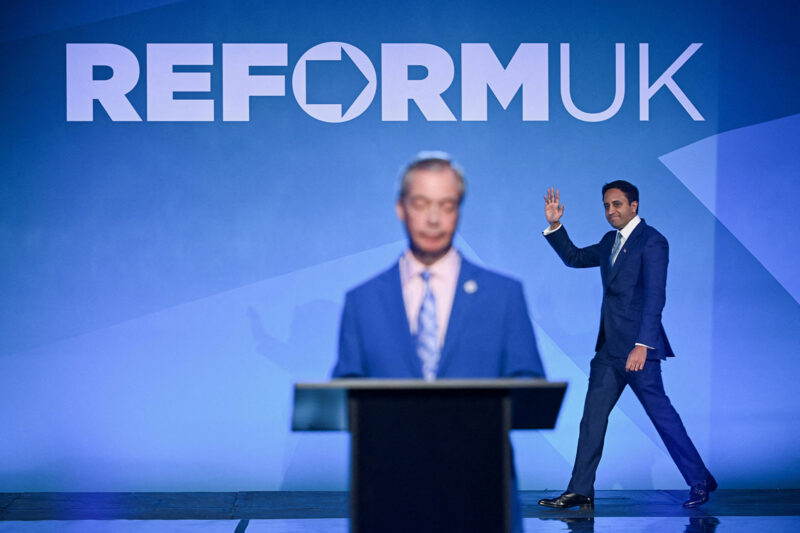Far right eyes Austrian electoral success after historic win in Germany
Following AfD victory in east Germany, Austria’s Freedom party — which proposes to ban political Islam — is polling at 30% ahead of general election
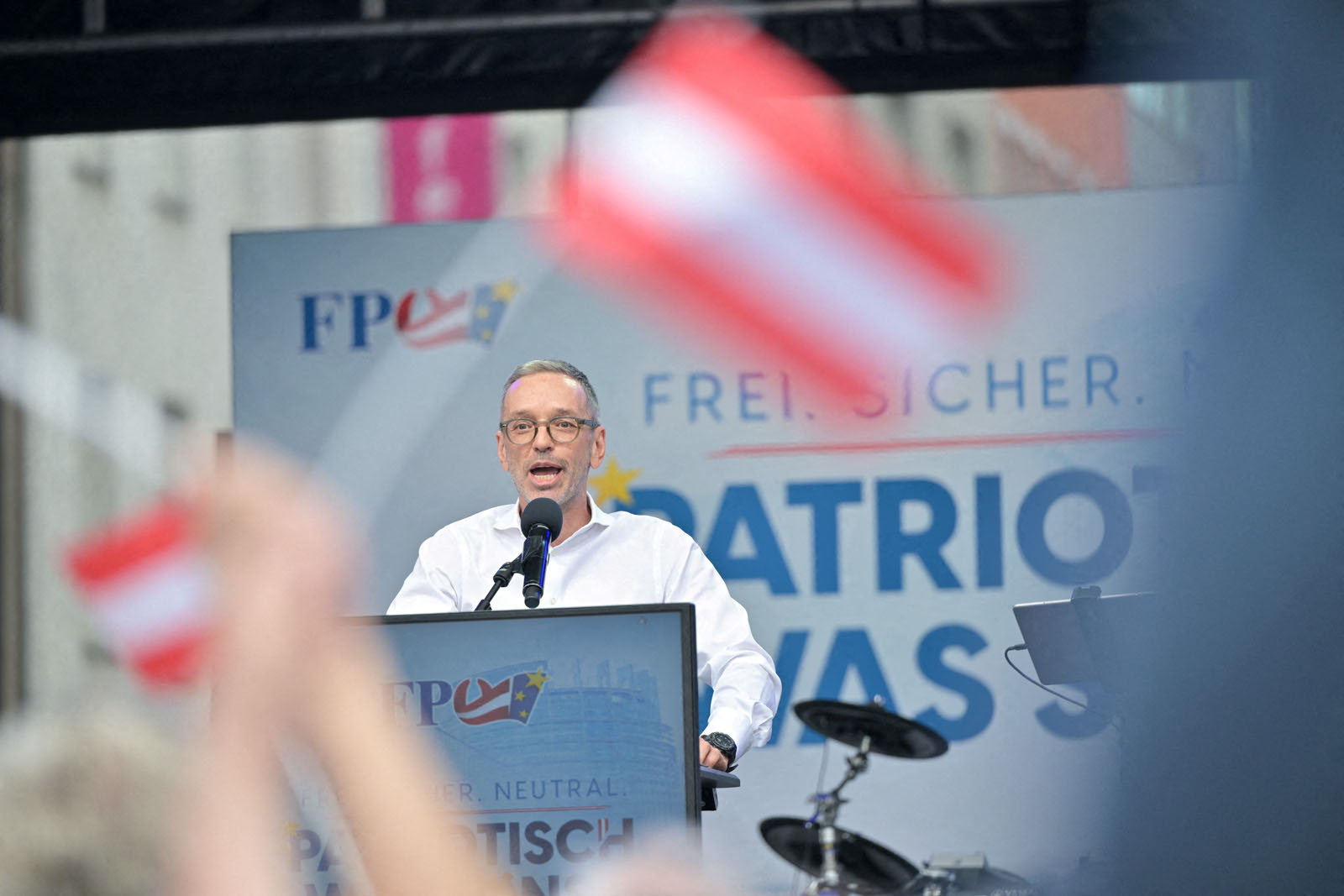
The far right has won its first regional election in Germany since the Nazi era and is riding high in Austrian polls ahead of the country’s general election on 29 September. In the state of Thuringia, in the former East Germany, the far-right Alternative für Deutschland (AfD) came out top in state elections with 32.8% of the vote on Sunday while, across the border in Austria, the Freedom party (FPÖ) is on course to win almost 30% of the national vote.
Even though the AfD’s victory has been predicted for months, it sent shockwaves through Europe’s political establishment and stoked fear among the region’s minority groups. Some worry that the results are a foretaste of what could come in neighbouring Austria and Germany’s own federal elections next year.
The AfD built its campaign in Thuringia around opposition to immigration and LGBTQ+ rights, deploying posters with the slogans “homeland instead of multiculturalism” and “there are only two genders”. In a rally the day before Sunday’s election, the AfD’s spokesperson in Thuringia, Björn Höcke — previously fined for using Nazi-era slogans in speeches — told the crowd that mainstream politicians were working to “replace the German people” with a “multicultural society”.
Germany’s federal system grants significant lawmaking powers to state governments on issues such as education, culture, social welfare and policing. The AfD is now set to gain 33 out of 88 seats in the Thuringia state parliament, just shy of the 40 needed to block legislation, and it is unclear how a governing majority coalition will or can be formed. Germany’s chancellor Olaf Scholz has urged mainstream parties not to work with the “rightwing extremists”, who he described as “damaging Germany”.
Meanwhile in Austria, which holds parliamentary elections on 29 September, the FPÖ is leading the polls with explicitly Islamophobic and anti-immigration messaging — even though migration to the country fell by almost a quarter last year. Some 8% of Austria’s population is Muslim, but the country does not allow dual citizenship, meaning many Muslim residents are not eligible to vote, a pattern seen across Europe. According to Austrian government data only 35% of people with a migration background have Austrian citizenship and are eligible to vote.
The FPÖ released an election programme on 21 August including a proposed ban on “political Islam”, a promise to reduce the number of people granted asylum, and a vaguely worded commitment to encourage “remigration” — returning people of migrant origin to the countries where their families originally came from — without specifying whether this would extend to residents born in Austria. After the party came top in June’s European parliamentary election, its leader Herbert Kickl called on the EU to install a “remigration commissioner”. FPÖ has also promised to enshrine in the country’s constitution the recognition of only two genders.
The party is also successfully exploiting public security concerns — including a foiled plot by an Islamic State affiliate to attack a Taylor Swift concert in Vienna this summer — as well as unrest over the cost of living, the war in Ukraine and Austria’s dependence on Russian gas. “The current mood [in the country] is very anti-government, there’s a lot of discontent,” said Reinhard Heinisch, professor of comparative Austrian politics at the University of Salzburg. “The Freedom party has been very effective in its anti-government messaging during a time when people feel very disoriented and confused.”
As is the global trend, mainstream politicians in Germany and Austria have been encouraged by the success of far-right parties with nativist messaging to take harsher positions on immigration. The leader of Germany’s centre-right Christian Democrats (CDU), Friedrich Merz, has called for EU asylum laws to be changed to curb the number of refugee arrivals, while chancellor Schloz of the Social Democrats (SPD) has pledged to increase deportations. Heinisch believes that in Austria, this tactic has empowered the far right rather than drawn voters away from it. “The Freedom party can say: ‘See, we told you, we’ve had this as an issue front and centre, the others are latecomers to the game’,” he said.
The FPÖ’s predicted votes are currently significantly less than the 50% it needs to form a majority government, so it would likely need to form a coalition and, like the AfD in Germany, it is unclear which parties would be willing to work with it. If the FPÖ cannot form a working government, parliament may break down and new elections would need to be held next year — opening another window for the FPÖ to attempt an overall majority.
Even if it does successfully form a government after the September elections, Heinisch is confident that the country’s courts would likely block the more extreme constitutional changes it is proposing. His fear is that an electoral victory would encourage and normalise Islamophobia. “The talk of bans, and this harsher language, would then probably trigger more racist incidents,” Heinisch warned.
 Newsletter
Newsletter


